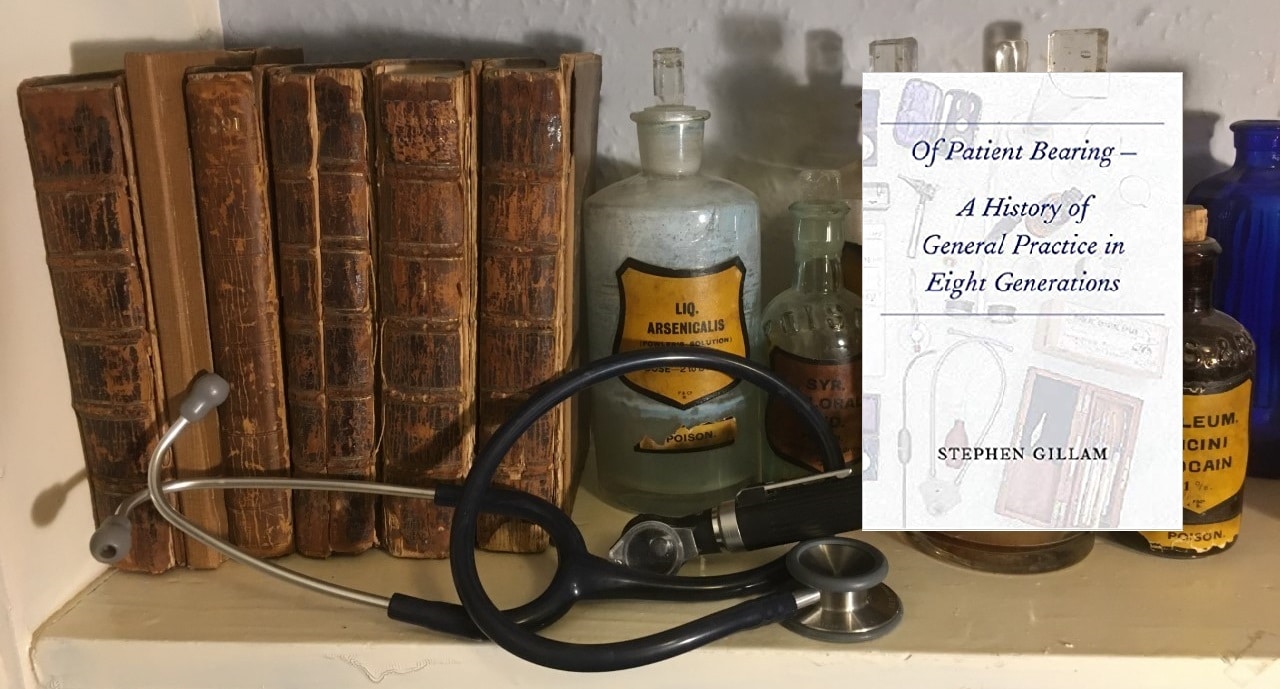 Raj Khanchandani has been a GP, now part time, for nearly 40 years at Blenheim Medical Centre, Luton.
Raj Khanchandani has been a GP, now part time, for nearly 40 years at Blenheim Medical Centre, Luton.
Medicine in the family
Lamentably, 53,000 people were incarcerated in asylums by 1890. The author’s great, great-grandmother, Lizzie Skrimshire, was committed to an asylum in 1873 aged 31, for 43 years (possibly with schizophrenia). Her husband later committed suicide aged 77. Because we identify with both of them as the author’s relatives there is an emotional impact beyond bare numbers.
Remarkably, Gillam’s family boasts eight generations of general practitioners dating to the 18th century, mostly based in East Anglia. Combine that with Gillam’s wide experience in general practice, public health and medical education, and Gillam has every right, nay a duty, to write about the development of general practice in Britain.
Changes in medical practice …. are set against the larger shifts in British politics, including electoral, social and agrarian reforms.
Family members light up the book. We see their successes, tribulations, and personalities. They contextualise changes in medical practice and education, in organisation, in public health, mental health, and pharmacology. These are set against the larger shifts in British politics, including electoral, social and agrarian reforms. It is written clearly and calmly. Perhaps a touch too calmly – there are moving stories which might have been written with more emotional impact.
A brief history of medicine reminds us that apothecaries, whom Gillam identifies as the forefathers of GPs, date back to 2500 BC Babylon. Of course, Hippocrates, Galen, the Arabs and important Europeans make an appearance. Curiously, there is no mention of Chinese or Ayurvedic medicine.
GPs as family doctors were recognisable by the mid-19th century. They were already gatekeepers with a medical and a pastoral role. They felt stressed from the “relentless grind of unmeetable demands…”, felt underpaid and isolated. People were lamenting that GPs might become a thing of the past. Sounds familiar?
By the mid-19th century …[GPs] felt stressed from the “relentless grind of unmeetable demands…”
Of course, there have been changes aplenty. The National Health Insurance Act of 1911 was perhaps more revolutionary that the formation of the NHS in 1948. Recent changes in general practice, the reorganisation, QOF, fundholding and so on, are accurately described, and are linked to his personal story and opinions. Gillam’s response to the inverse care law, and the needs of the deprived, are moving.
The future is bright, but will we regret the loss of continuity and personal care which many colleagues have accepted as inevitable? This is a thought-provoking book with depth and personal touches. A winning combination.
Featured book
Of Patient Bearing – A history of general practice in eight generations. Stephen Gillam. Hill House Publishing, 2021, 280pp, £12.99, 978-1838270209
All profits from the book will be donated to Amnesty International
Featured photo by David Misselbrook






